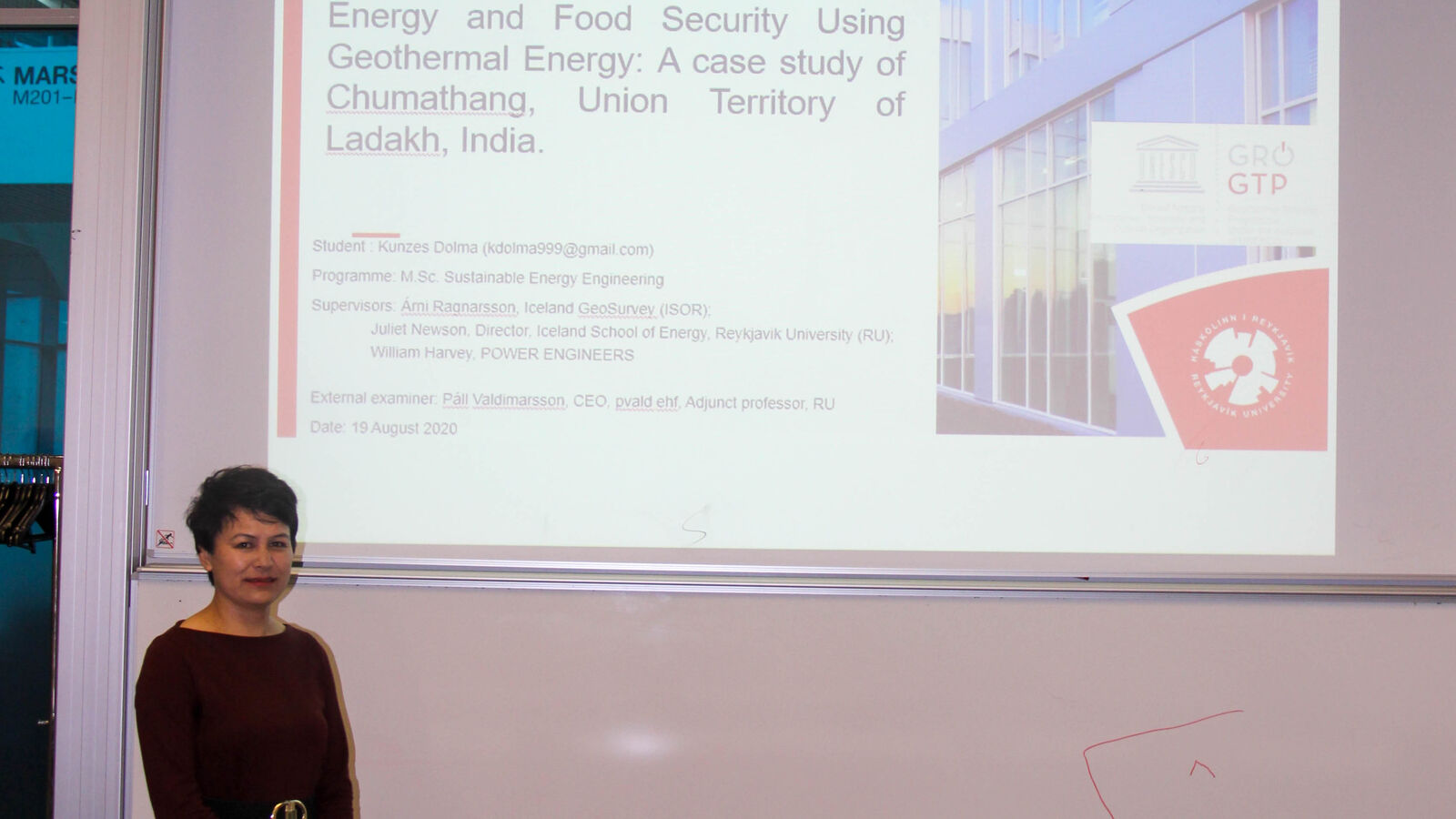MSc Thesis: Energy and Food Security Using Geothermal Energy: A case study of Chumathang, Union Territory of Ladakh, India
REYKJAVIK, August 19 - MSc in Sustainable Energy Engineering candidate, Kunzes Dolma, successfully defended her master's thesis where she investigated energy and food security in the presence of geothermal energy. Kunzes focused on Chumathang, Union Territory of Ladakh in India, for her case study. Kunzes' research was supervised by Juliet Newson from Reykjavik University, as well as Árni Ragnarsson from ÍSOR (Iceland GeoSurvey).

Kunzes sets the stage, stating that energy and food are the two essential requirements for the national security of any country. Specifying her country of focus, she explains that India is the third largest consumer of oil, the fourth largest oil refiner and a net exporter of refined products. Further, India is dependent on the import of fossil fuel for meeting its energy demands which were 80% in 2018. Kunzes continues, stating that 60% of the electricity goes to meet the Heating Ventilation Air conditioning (HVAC) demands of the country. She postulates that the dependence on fossil fuel can be reduced by using locally available renewable energy sources like wind, solar and geothermal. Kunzes adds that a solution is also required to the problem of energy access in remote areas where a reliable supply from the national grid is not available.
To address these issues, Kunzes' research investigated the feasibility of utilising low enthalpy geothermal energy to provide energy and food security especially in remote areas. As her case study, Kunzes focused on the village of Chumathang located at 3950 masl in Union Territory of Ladakh, India. There, she showed the socio-economic impact of geothermal utilisation in remote areas by using a low enthalpy geothermal and how it can solve the current problem of food and energy security. Kunzes proposed a 5 MW binary power plant as a solution for the electricity problems of the area which could replace the current installed 20 kW diesel generator and provide reliable and clean energy. She further proposes a commercial greenhouse of 1000 m2 which she states would be able to supply year-round fresh vegetables.
Kunzes' research in her case study showed that such projects could lead to employment opportunities, prevent migration of people in search of jobs, add to food and energy security of the region, and improve the health of people. She adds that this is especially important for women in the region who bear most of the burden of domestic work and are most impacted by energy poverty. Concluding, Kunzes states that such a model can be replicated in any low temperature geothermal remote areas where normally energy supply is not possible.
Congratulations Kunzes on an excellent thesis defence!
